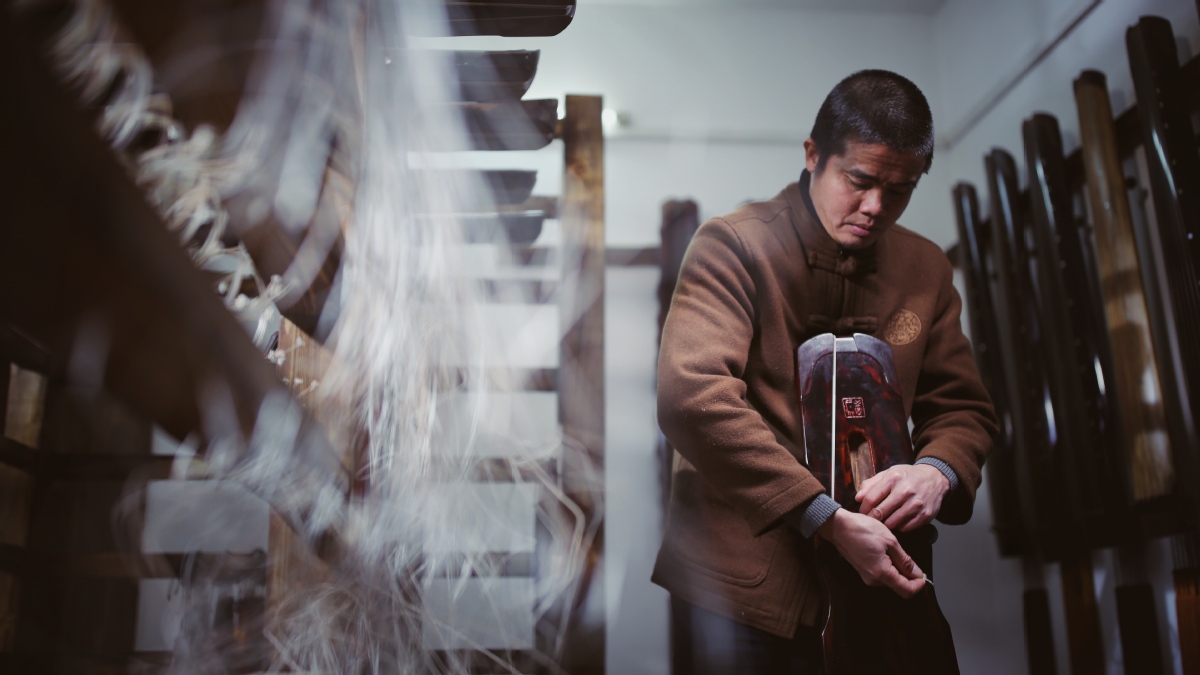Chinese guqin adopted by Vietnamese scholar
By Liu Kun in Wuhan and Ye Zizhen | chinadaily.com.cn | Updated: 2020-12-21 14:08

Behind a wooden door with copper nails and just beyond a bamboo curtain, musical scores written in Chinese calligraphy hang on a wall. The clean, pure sound of a stringed instrument greets the ear. You might think you had just stepped back in time.
Welcome to Nantianfang — an antique style workshop devoted to the making and playing of the guqin, a classic Chinese instrument — which opened recently in Wuhan, Hubei province. But this workshop is owned and operated by a Vietnamese student.
Nguyen Dientuan, who was born in Guang Tri province in Vietnam in the 1970s, gradually developed an interest in Chinese culture and the art of the guqin after watching the film Six-Fingered String Demon in the 1990s and Hero in early 2000s.
"The guqin music played in these films touched me deeply, but back then I never thought instrument and the art of making it would become a lifelong fascination," Nguyen said.
Nguyen came to Wuhan in 2005 and entered Central China Normal University with a major in ancient Chinese literature. Before that, he studied Chinese in Vietnam and worked as a carpenter in a furniture workshop. Friends and colleagues call him boshi, meaning doctor.
The guqin, a seven-stringed plucked instrument, has a history of more than 3,000 years. In 2003, guqin art was listed as a world intangible cultural heritage by UNESCO.
Nguyen learned how to play the guqin, as well as how to make them, during his master's and doctoral studies over the past 15 years. He would seek help from professionals when he encountered difficulties. Ding Chengyun at the Wuhan Conservatory of Music was one of his mentors.
In Nantianfang, students not only learn how to play the guqin but also experience the process of constructing and polishing it. The process is called zhuoqin. From selecting wood to tone tuning and finish coating, it takes two to three years to make a single instrument.
"Many of my students here are not after the certificate," Nguyue said. "Playing guqin is a process of self-cultivation. I hope in the future, I can bring the art of guqin back to my home in Vietnam".
























